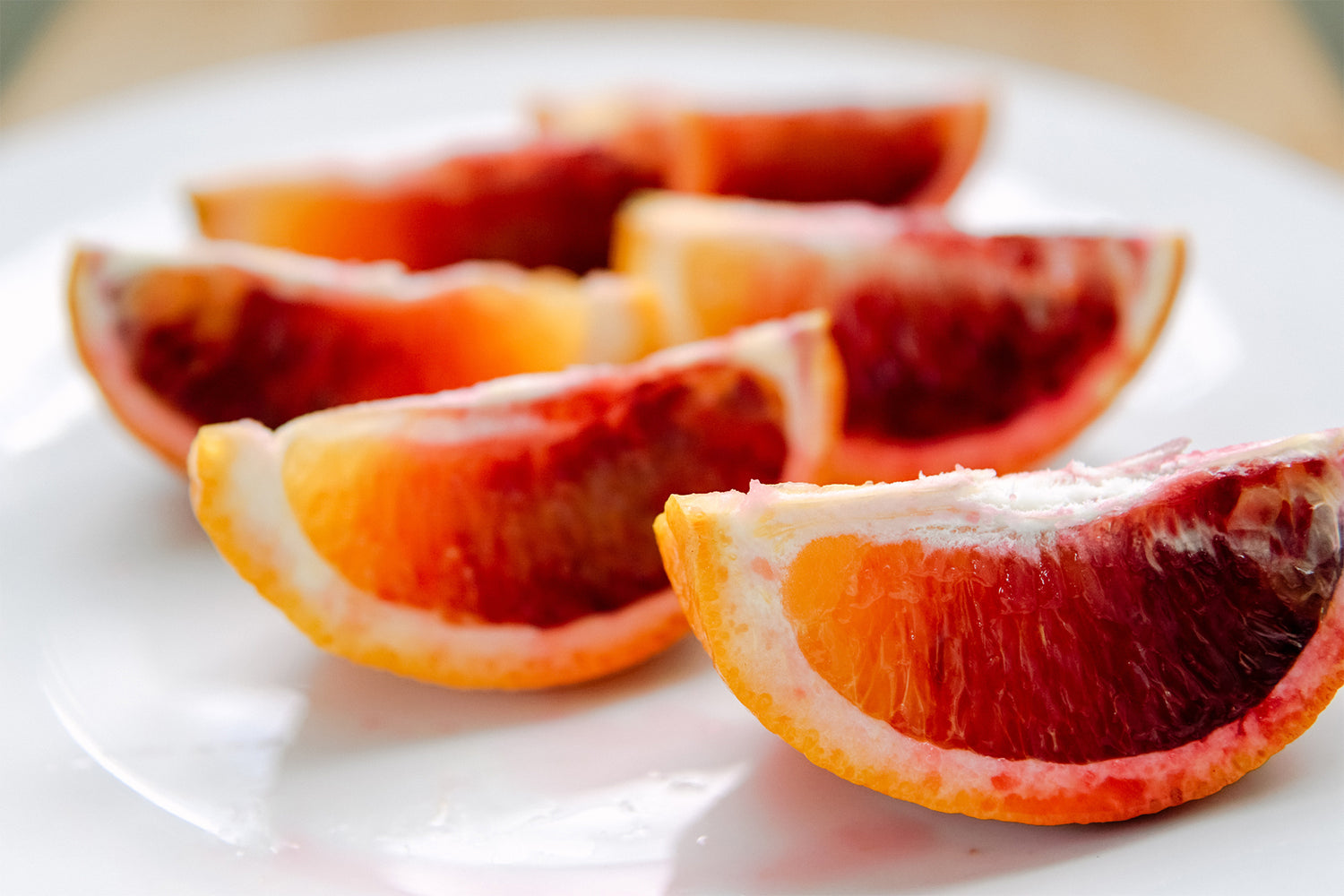Metabolic Syndrome, Weight Management & Obesity
Metabolic syndrome, characterized by abdominal obesity, high glucose and cholesterol levels, and high blood pressure, poses significant risks for type 2 diabetes and heart disease. A study investigating the effects of consuming 750ml of red orange juice over 8 weeks on metabolic syndrome risk factors yielded compelling results. Participants experienced improved insulin resistance, lower cholesterol levels, and reduced systolic blood pressure. Notably, despite an increase in total calorie and carbohydrate intake per day by 344 calories and 86 grams of sugar respectively, there was no weight gain observed. This study revealed that daily consumption of blood orange juice not only improves metabolic risk factors but also does not promote weight gain (9).
In a ground breaking 2010 study, blood orange juice was found to influence the function of fat cells, rendering them less likely to be stored as fat. Mice were divided into groups, with one group receiving a standard diet supplemented with water, blood orange juice, or navel (blonde) orange juice, and the other group receiving a high-fat diet along with one of the three drink options. Surprisingly, mice consuming blood orange juice alongside a standard diet gained less weight and exhibited no adverse effects on blood sugar and lipid levels compared to those drinking navel juice or water. This was noteworthy, considering the increased calorie intake resulting from the juice's sugar content. Furthermore, blood orange juice significantly reduced or nearly abolished weight gain in mice on a high-fat diet, with a remarkable 50% reduction in belly fat mass recorded (10).
A follow-up study in 2012 further explored the effects of blood orange juice on mice fed a high-fat diet or a standard diet. Each group was subdivided into those receiving water or blood orange juice. Body weight and various biomarkers, including liver and metabolic enzymes, were assessed. Initially, all mice had similar body weights. However, after 12 weeks, mice on a high-fat diet supplemented with blood orange juice had the same body weights as those on a standard diet and water, despite the additional 10% of calories attributed to the juice's sugar content. Intriguingly, mice receiving blood orange juice exhibited lower cholesterol and triglyceride levels and enhanced insulin sensitivity. In contrast, mice on a high-fat diet and water showed evidence of steatosis, a marker of fatty liver disease.
Based on the findings that blood orange juice can reverse metabolic abnormalities in obese mice, researchers concluded that it may represent a promising dietary option for preventing metabolic syndrome, including fatty liver. The results call for further clinical trials to validate these effects in humans (11).
While animal studies offer promising insights, it is important to note that results may not always translate similarly in humans. In a 2015 clinical study involving overweight human subjects over a 12-week period, the effects of a standardized blood orange extract called Morosil® were evaluated. The study demonstrated that blood orange extract can significantly reduce weight, BMI, and hip circumference compared to a placebo. Participants received a daily dose of 400mg of Morosil®, which is approximately equivalent to the hydroxycinnamic acids and anthocyanins found in one blood orange per day (12). This effect was repeated in a 2022 study in which body mass, BMI, fat mass and fat distribution were all significantly better in the group treated with the blood orange extract (23).
In conclusion, the research indicates the potential of blood orange and its extract in improving metabolic health, managing weight, and reducing the risk factors associated with metabolic syndrome. However, further studies, particularly clinical trials, are needed to fully understand and validate these effects in humans
